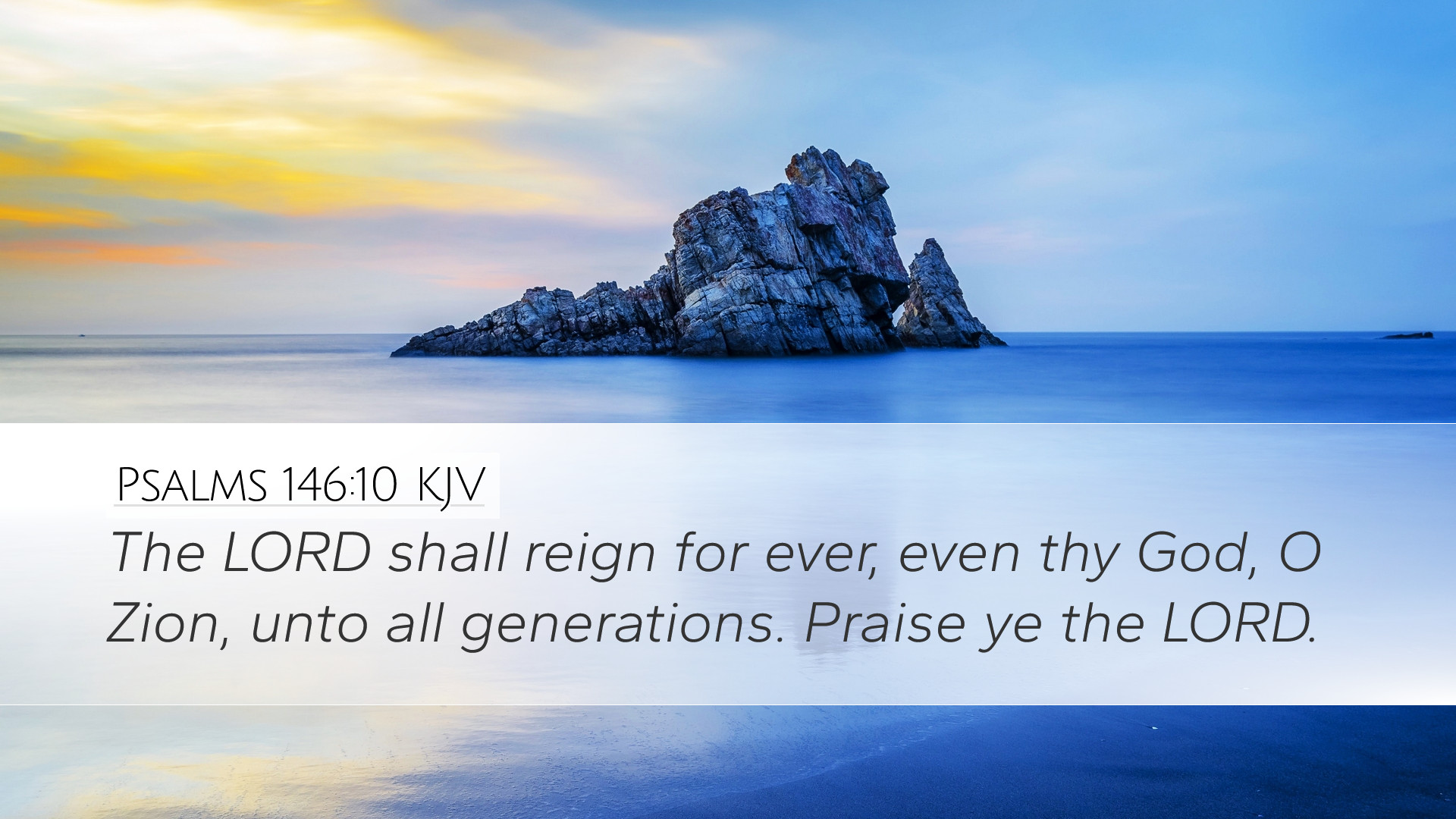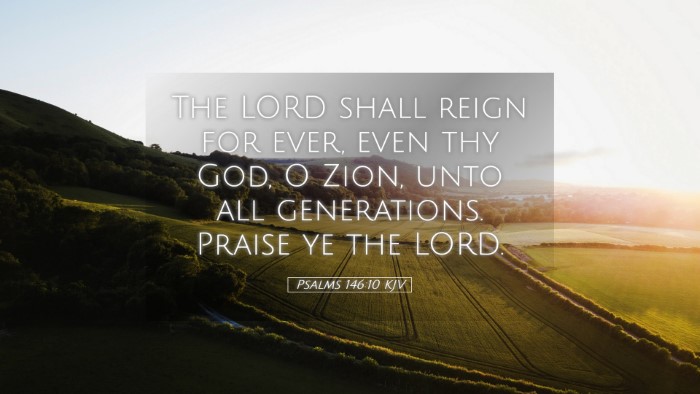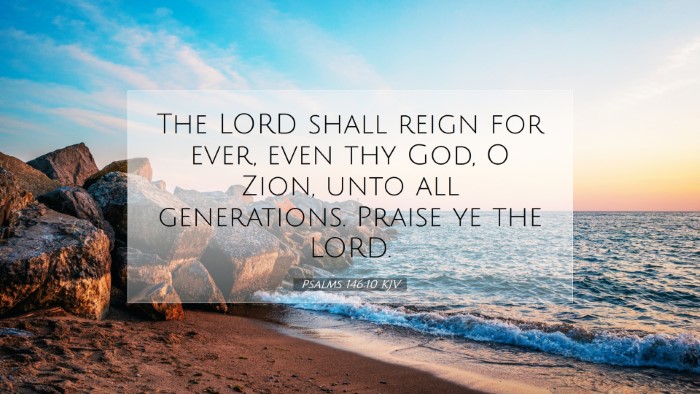Psalms 146:10 Commentary
Verse: "The Lord shall reign for ever, even thy God, O Zion, unto all generations. Praise ye the Lord."
Introduction
This verse concludes the final five psalms in the Book of Psalms, often referred to as the Hallelujah Psalms, denoting a climactic expression of praise. The psalmist invites the faithful to recognize God's eternal sovereignty and faithfulness to His people.
Contextual Background
Psalm 146 is part of a series that emphasizes the worthiness of God to be praised, particularly in contrast to human frailty. It highlights God’s eternal reign in stark contrast to the transient nature of human authority and power.
Historical Context
The Jewish people traditionally viewed God's covenant faithfulness as essential, with Zion representing the Jewish heart—both politically and spiritually. Through this psalm, the worshipper acknowledges God's sovereign rule over His creation.
Commentary Insights
-
Matthew Henry's Insights
Matthew Henry points out that the reign of the Lord is eternal and that this brings hope and assurance to believers. He emphasizes the understanding of God as the supreme ruler who governs all creation with justice and mercy. According to Henry, the psalmist encourages the faithful to find solace in God's continual oversight and eternal kingdom during life's uncertainties.
-
Albert Barnes' Insights
Albert Barnes interprets "The Lord shall reign for ever" as an affirmation of God's unchanging nature and the permanence of His divine authority. He notes that human rulers are temporary and flawed, but God's rule is characterized by everlasting strength and righteousness. Barnes challenges the believers to recognize the futility of placing their trust in human leadership and instead to delight in God's enduring governance.
-
Adam Clarke's Insights
Adam Clarke elaborates on the significance of Zion in this passage, interpreting it as a metaphor for the Church of Christ. He asserts that the promise of God's reign extends throughout all generations, emphasizing that believers across time can find assurance in God's lordship. Clarke also highlights the call to "Praise ye the Lord," depicting it as a natural response to recognizing God’s eternal sovereignty and willingness to engage with His creation.
Theological Implications
The verse presents several key theological themes that are crucial for understanding the nature of God as described in Scriptures:
- The Sovereignty of God: Psalms 146:10 affirms that God's reign is perpetual, contrasting transient political powers.
- Faithfulness: The verse provides reassurance of God's steadfastness, underscoring the unchanging nature of His covenant promises throughout generations.
- Call to Worship: Recognition of God's reign naturally leads to praise and worship, which is a central theme in the Psalms.
Practical Application
For pastors and leaders, this verse encourages robust teaching on the nature of God’s sovereignty, leading congregations towards an understanding of reliance on His eternal authority rather than the changing tides of societal influences. The call to praise serves as a reminder for believers to express gratitude and acknowledgment of God’s providential care in their daily lives.
For Students of Theology
In theological studies, this psalm can be examined to draw distinctions between human governance and divine rule. It invites in-depth exploration of the attributes of God—His omnipotence, immutability, and faithfulness. Additionally, this verse provides a platform for discussions about eschatology and the role of the Church in proclaiming God's sovereignty in a world of uncertainty.
Encouragement for Scholars
This text serves as a springboard for scholarly inquiry into the Psalms’ contributions to worship and theology. It invites analysis of ancient Near Eastern kingship and the Hebrew understanding of divine kingship, comparing and contrasting how these concepts can be applied in our contemporary context.
Conclusion
Psalms 146:10 encapsulates the essence of worship—celebrating God's eternal reign and His unending faithfulness to His people. It calls believers to acknowledge His sovereignty, ensuring that praise flows naturally from hearts that understand His rule is not just for today, but for all generations. Let this verse be a powerful reminder of the enduring nature of God's kingdom and a foundational element of our worship and understanding as we engage with the text.


